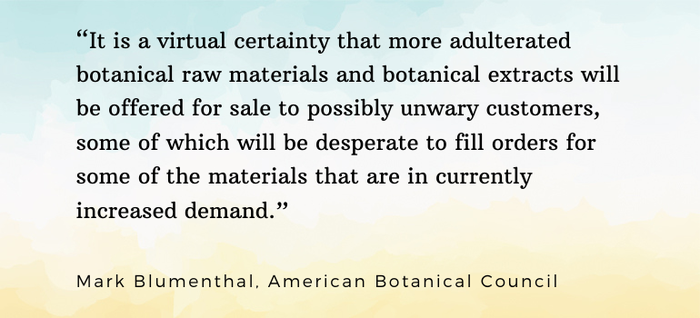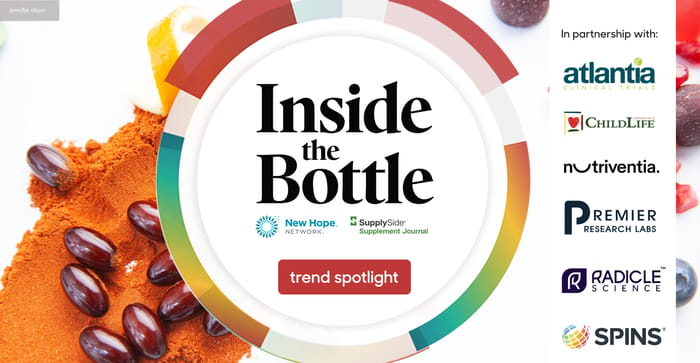
The FDA has surely never been as stretched as it is right now. Already short on staff and resources, the agency’s Office of Dietary Supplement Programs has stopped making inspections. That leaves an entire industry to follow GMPs on the honor system, even though GMPs have proven a persistent problem since they were first codified.
The Council for Responsible Nutrition’s Steve Mister calls it a moment when the supplement industry could prove its capacity to self-police. It’s up to the brands to show what that means. “They need to really double down on that because nobody is looking over your shoulder,” Mister says.
Takeaway: The FDA has suspended GMP inspections, leaving the industry to police itself just as consumers could be putting a higher priority on quality.
There is much to worry about, as American Botanical Council Executive Director Mark Blumenthal explains. The combination of high demand and the possibility of a disrupted, and effectively deregulated, supply chain creating shortages increases the chances of adulterated ingredients as rising prices incentivize shady behavior.
“It is a virtual certainty that more adulterated botanical raw materials and botanical extracts will be offered for sale to possibly unwary customers, some of which will be desperate to fill orders for some of the materials that are in currently increased demand,” Blumenthal writes in email.

ABC’s Botanical Adulterants Prevention Program presses the issue during less unsettled times, and today Blumenthal warns how substandard or fraudulent products could short-circuit the industry’s opportunity to build a long-term customer base out of consumers just now stepping into the market.
“It’s certainly time for responsible, ethical suppliers and manufacturers to double and triple down on their ingredient quality control identity and authentication procedures,” Blumenthal writes.
Mister is similarly adamant. Supplements are doubly at risk during a crisis like COVID-19, when the industry could be known for either its mission or its misdeeds. An adulteration story might not blow over when attention so is high.
“When consumers inevitably find out about it, that will be the headline,” Mister says.
Pandemic Potential Part 8
<< Go back to Claims Questions article | Go to next article: The 'R' Word >>
About the Author
You May Also Like






